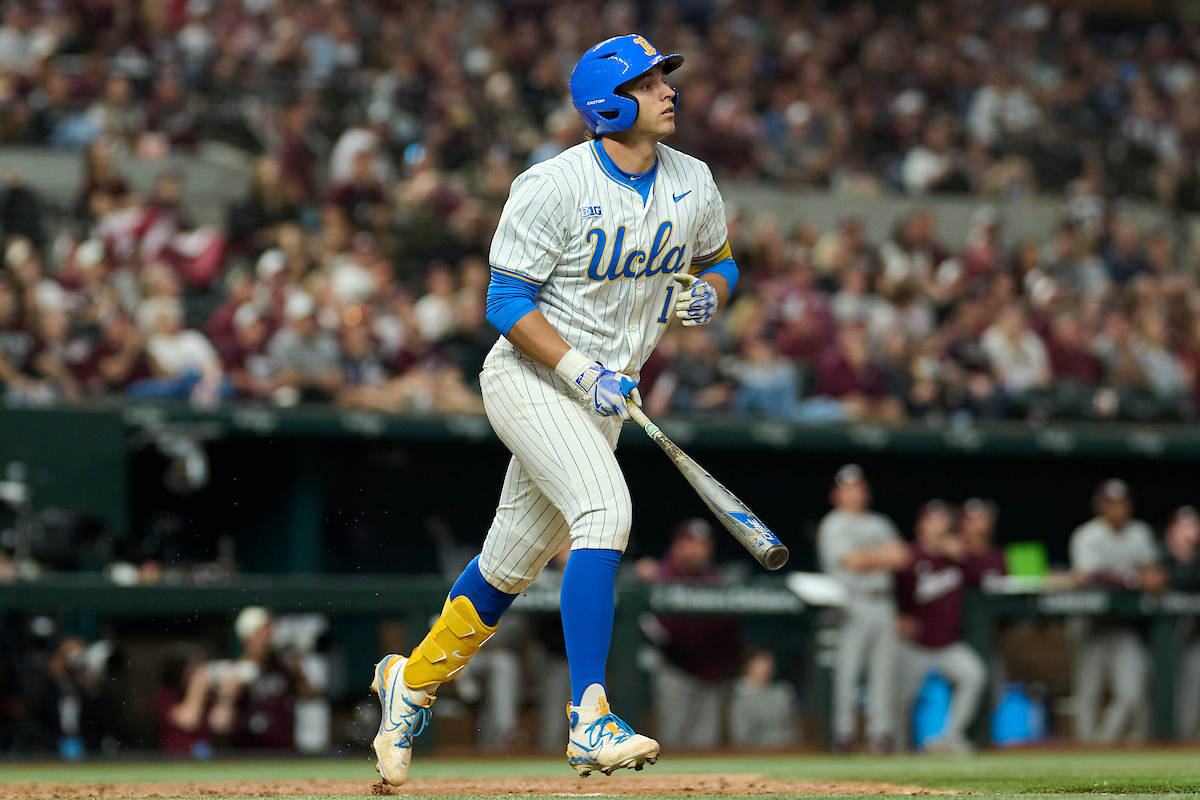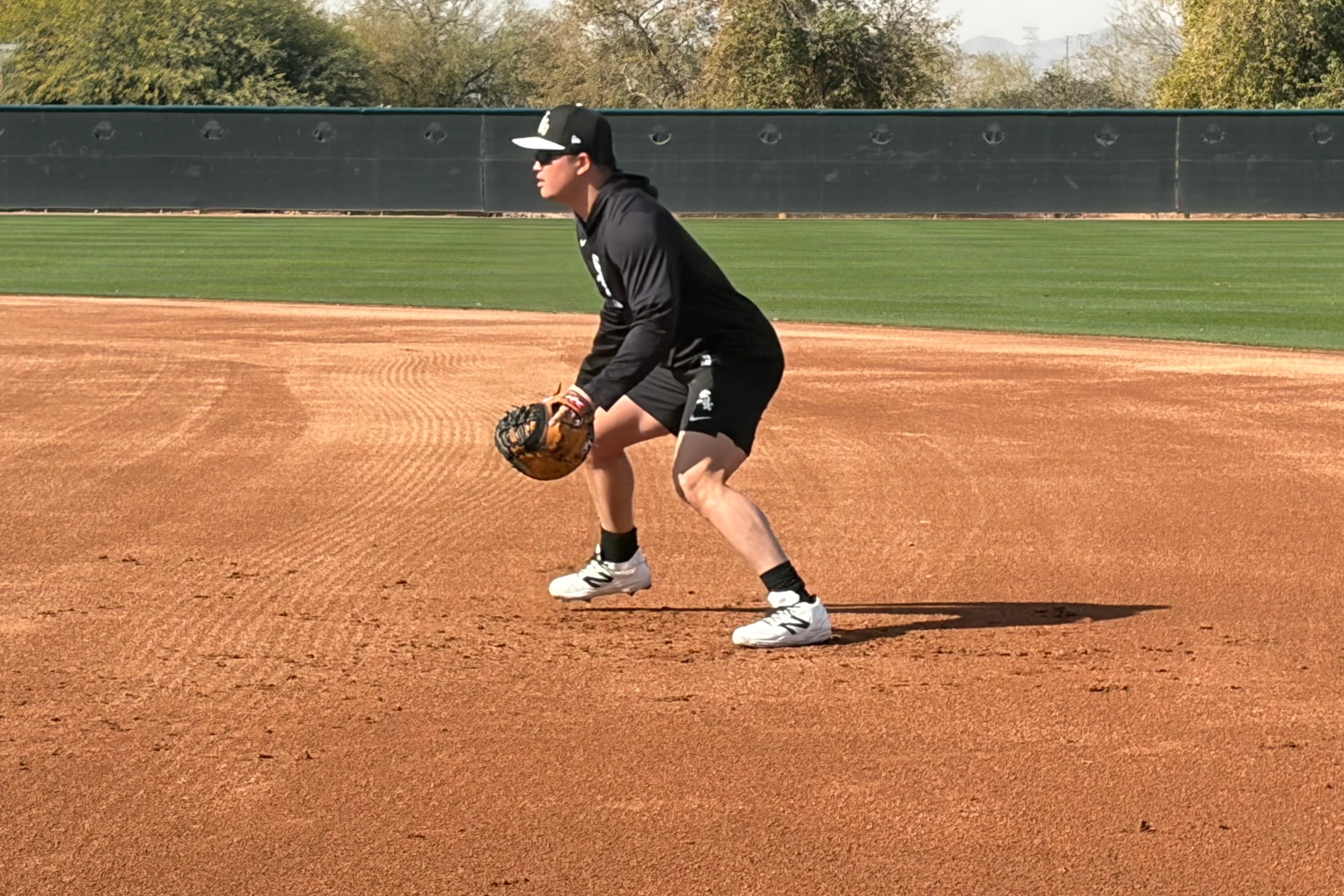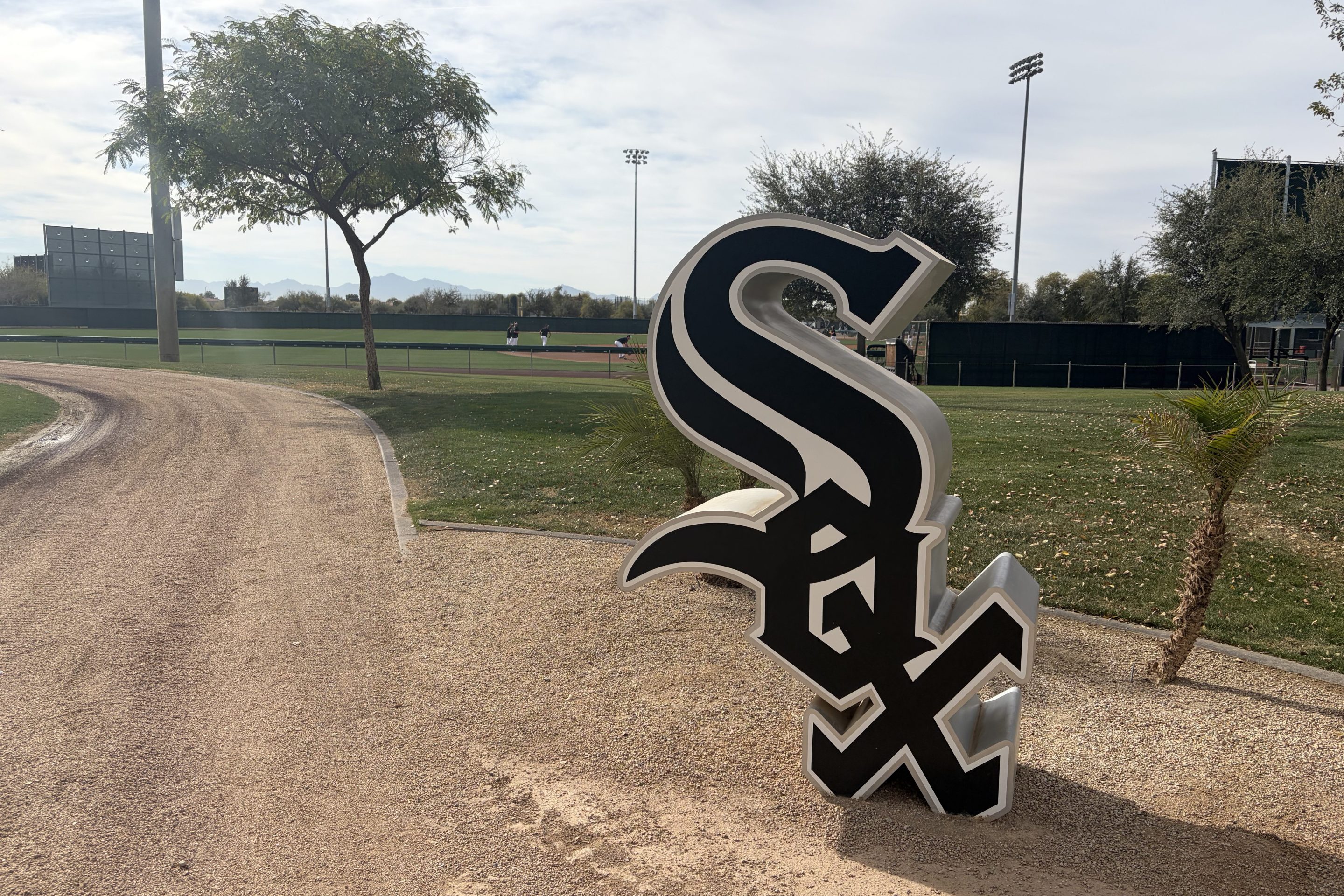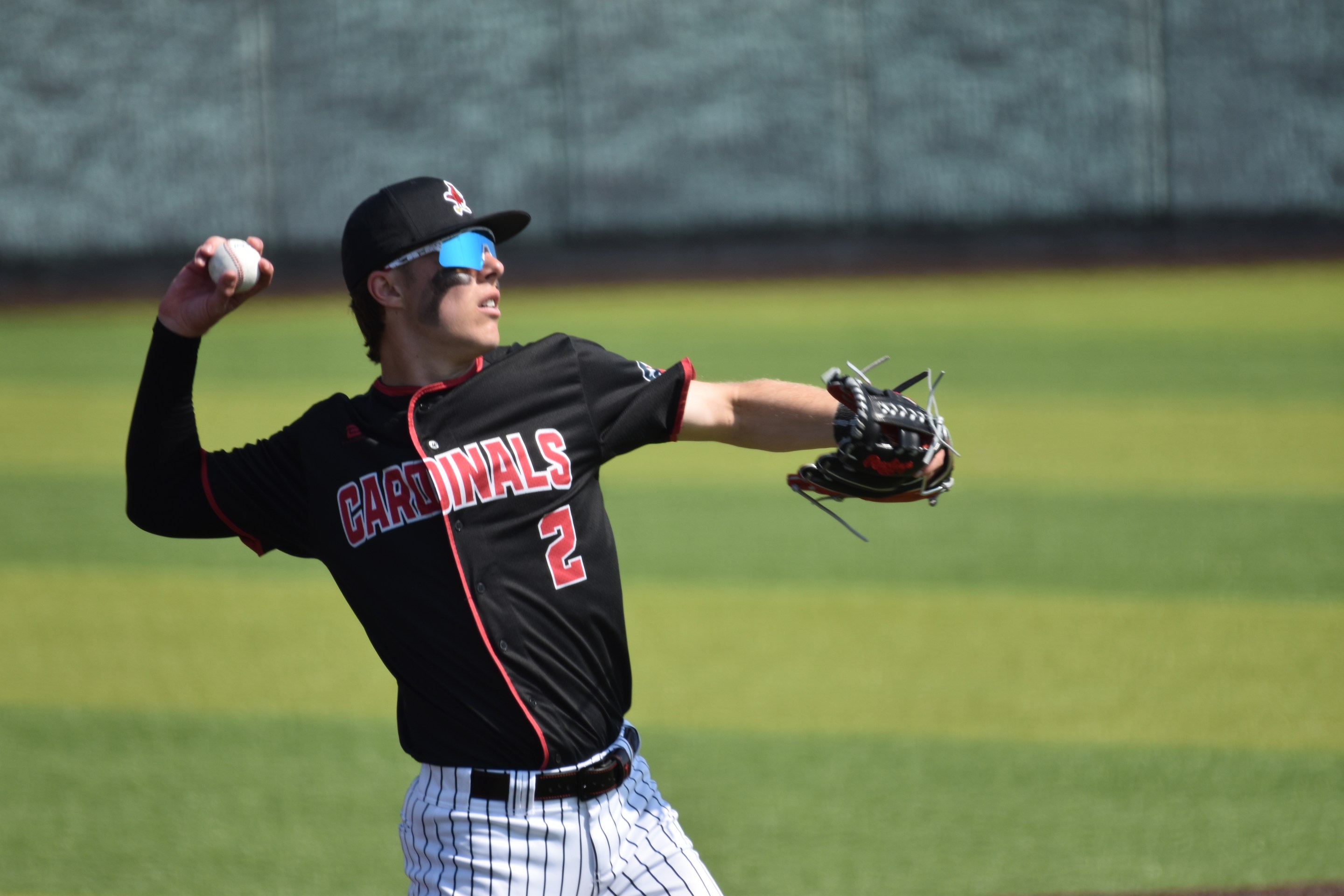PREAMBLE
Objective: Construct a competitive, developmentally sound roster capable of flirting with .500 in 2026, while maintaining full post-lockout flexibility. No multi-year financial commitments beyond 2026.
After consecutive rebuild years, 2026 represents a bridge season — not an all-in sprint, but a crucial proof of concept. The White Sox aim to:
- Modernize the pitching infrastructure under new pitching coach Zach Bove, emphasizing pitch-shape optimization, tunneling, and strike efficiency.
- Convert surplus pitching into stable, controllable offense.
- Keep the books clean heading into a likely post-2026 MLB work stoppage.
- Develop a competitive identity built around strike-throwing, contact balance, and defensive structure.
The result: a cost-efficient roster with league-average upside and room for midseason prospect reinforcements.
COACHING STAFF
- Hitting coach: Derek Shomon
- Pitching coach: Zach Bove
Hitting Coach and Pitching Coach already signed
ARBITRATION-ELIGIBLE PLAYERS
- Mike Tauchman: Tender
- Steven Wilson: Tender
- Derek Hill: Non-tender
Tauchman: He quietly posted a 1.9 WAR, .356 OBP, .756 OPS (112 OPS+) in 2025 — that’s legitimate production and excellent on-base value at a reasonable price. His left-handed bat, plate discipline, and defensive versatility make him a stabilizing outfield presence on a team still sorting through young bats. At 34, he’s not a long-term piece, but he’s earned another season as a lineup floor-raiser.
Wilson: A no-brainer tender. Logged a 3.42 ERA over 59 games (1.2 WAR) and maintains a strong K/BB profile. He’s cheap, dependable, and fits perfectly in the restructured bullpen alongside Taylor, Helsley, and Maton.
Hill: Despite solid defense and speed, his .216/.281/.328 slash line (69 OPS+) offers little offensive value, and he’s entering his age-30 season. With Robert Jr. healthy and Tauchman back, there’s no roster spot justification.
CLUB OPTIONS
- Luis Robert Jr.: Exercise $20 million option
- Martín Perez: Buy out for $1.5 million
Robert: Despite a down year (.223/.297/.364, 14 HR, 1.4 WAR), Robert remains one of baseball’s most dynamic talents when healthy and holds enormous trade value. Even if he’s dealt midseason, this contract is below market for a 4+ WAR upside center fielder. Exercising the option is a no-brainer.
Perez: Pérez bounced back (3.54 ERA, 1.2 WAR in limited 56 IP), but given his age (34) and modest durability, he’s better suited to return or sign elsewhere on a smaller one-year deal in the $6–7M range.
FREE AGENTS
Free Agent Signing Number 1: RHP Michael Lorenzen – 1 year, $9.5M + 2027 club option $11M, $1M buyout. Lorenzen worked under Bove’s Kansas City staff, giving Chicago a plug-and-play starter already familiar with his pitch design philosophies. Works in SP4/SP5 roll, 140-160 IP, 2026 Projection: 4.20 ERA, 1.30 WHIP, ~2.0 WAR. Upside: Can shift to a multi-inning leverage role once Schultz/Hagen Smith debut. Reliable, tradeable innings, no long-term cap implications, fits staff identity (21% K, 6% BB, heavy changeup usage vs LHH), high flip potential if performing by July.
Free Agent Signing Number 2: LHP Kyle Hart – 2 years, $8M + 2027 club option $5M, $0.5M buyout. Bove’s emphasis on pitch-shape optimization makes Hart a seamless fit — elite sweeper, deceptive sinker separation, and a groundball profile that thrives in Chicago. Works in SP4/SP5 roll, 150 IP bridge until Schultz / Hagen Smith arrive, ~1.8 WAR. Tyler Alexander-type, but with more miss and less variance.
Free Agent Signing Number 3: Danny Coulombe – 1 year, $6.5M + 2027 club option ($7M / $0.5M buyout). True leverage lefty with 33% whiff on sweeper / cutter mix. Veteran mentor to Taylor / Leasure. Adds swing-and-miss to a groundball-heavy rotation.
Free Agent Signing Number 4: Jalen Beeks – 2 years, $10M + mutual 2028 option ($6.5M / $0.5M buyout). Multi-inning LHP who limits walks and keeps the ball in the park. Bridge arm who fits Bove's multi-look philosophy.
Free Agent Signing Number 5: Rob Refsnyder (OF/1B/DH platoon bat) – 1 year $3.3M + incentives up to $5M. Veteran RH platoon bat vs LHP (.829 OPS career vs lefties), 2027 mutual option, no buyout with a clean cap hit, complements Tauchman / Burleson, spot starts in RF / DH, potential July trade chip.
TRADES
White Sox send Davis Martin & Lenyn Sosa to the Cardinals for Alec Burleson (1B/LF) Value alignment: 20.8 (CHW) vs 20.3 (STL) surplus — near even.
Why it works for Chicago:
- Converts volatile back-end innings (Martin) into a controllable left-handed bat. - Burleson’s contact-driven, high “squared-up” profile (.342 xwOBA, 14.5% K%) plays perfectly at Guaranteed Rate Field, which rewards pulled LH fly balls.
- Offers positional versatility (LF/1B/DH) and OBP stability vs RHP (.343 OBP, .802 OPS in 2025).
- Low-cost, arbitration runway through 2029.
Why STL accepts: They gain an immediate innings-eater and a middle infield depth piece, addressing durability concerns and bench flexibility.
SUMMARY
Lineup and Everyday Roles
- Chase Meidroth (2B): contact-oriented leadoff hitter with plate discipline and on-base skills.
- Colson Montgomery (SS): the franchise cornerstone; high OBP with emerging power and leadership presence.
- Luis Robert Jr. (CF): the star and centerpiece of the offense if he stays healthy; a 5-tool anchor.
- Alec Burleson (1B/LF): left-handed contact bat and middle-order stabilizer, ideal park fit.
- Miguel Vargas (3B): a disciplined gap-to-gap hitter who keeps the strikeouts down.
- Andrew Benintendi (LF): steady veteran with bounce-back potential and clubhouse value.
- Kyle Teel (C): polished rookie backstop with strong defense, contact skills, and emerging gap power.
- Rob Refsnyder (DH): short-side platoon bat who punishes left-handed pitching.
- Mike Tauchman (RF): reliable defender and on-base specialist rounding out the order.
Bench contributors include Edgar Quero as a switch-hitting backup catcher, Curtis Mead as a versatile infield bat, and Brooks Baldwin as a utility defender capable of playing multiple spots. Bryan Ramos starts the season in AAA but could earn playing time by midyear.
Pitching Staff
Starting Rotation
- Shane Smith (RHP): young, durable rotation anchor capable of 180 innings and a sub-4 ERA.
- Drew Thorpe (RHP): elite changeup and command profile; dependable innings-eater.
- Kyle Hart (LHP): steady back-end lefty who generates soft contact and complements the right-handers.
- Michael Lorenzen (RHP): reliable veteran innings and trade-deadline flexibility.
- Sean Burke (RHP): opens the season as SP5 while the prospects develop in AAA.
Prospect Pipeline
- Noah Schultz (LHP): expected to debut by June; 6'10" with a plus slider and mid-90s fastball.
- Hagen Smith (LHP): joins midseason, bringing high-strikeout upside from the left side.
Together, Schultz and Hagen Smith project to add 3–4 WAR to the rotation in the second half.
Bullpen Core
- Grant Taylor (Closer): rising star closer with a 100 mph fastball and legitimate All-Star upside.
- Jordan Leasure (Setup): power righty who can handle high-leverage innings.
- Danny Coulombe (LHP): veteran leverage arm with swing-and-miss ability.
- Jalen Beeks (LHP): multi-inning lefty who bridges to the late innings.
- Steven Wilson (RHP): reliable 6th–7th inning option.
- Wikelman González (RHP): developing flamethrower in middle relief.
- Mike Vasil and Tyler Gilbert: long relievers and swingmen capable of handling bulk innings.
Season Outlook
- The 2026 White Sox are built to hover around .500 with a focus on development, stability, and flexibility.
- Early in the year, the rotation will lean on Smith, Thorpe, Hart, and Lorenzen to provide consistent innings.
- By June, Schultz’s debut injects life into the fan base and rotation, followed shortly by Hagen Smith’s promotion.
-The bullpen — featuring Taylor, Leasure, Coulombe, and Beeks — quietly becomes one of the team’s biggest strengths.
- Montgomery and Teel lead the offense by summer, while Robert remains the team’s heartbeat and potential All-Star representative.
Trade Deadline Plan
- If the Sox are around .500 in July, they’ll hold the core and trade short-term veterans to extend the talent pipeline.
- Expected trade candidates include Michael Lorenzen, Danny Coulombe, and Rob Refsnyder — all on expiring or option-friendly deals.
- These moves clear space for Schultz, Hagen Smith, and other internal promotions without weakening the roster.
- If the team is above expectations, they may modestly buy controllable bullpen or bench depth, but never at the expense of 2027 flexibility.
Projected 2026 Results
- Record: 78–84 (≈ .481 winning percentage).
- WAR Improvement: From 11.5 in 2025 to roughly 32–33 in 2026.
- ERA: Improved from 5.08 to roughly 4.20.
- Payroll: Around $85 million, well below league average.
- Identity: Young, analytically driven, and finally competitive again.
The White Sox won’t make headlines for star power, but they’ll finally resemble a functioning, modern baseball organization — one that plays cleaner baseball, throws more strikes, and gets more out of less.
- The Sox finish with their best record since 2021 and enter the expected lockout year with a lean payroll, a growing young rotation, and a core built around Montgomery, Robert Jr., and Teel.
- By 2027, when the league resumes, the White Sox will be ready to pivot from rebuilding to truly competing — powered by one of baseball’s youngest, most efficient rosters.






